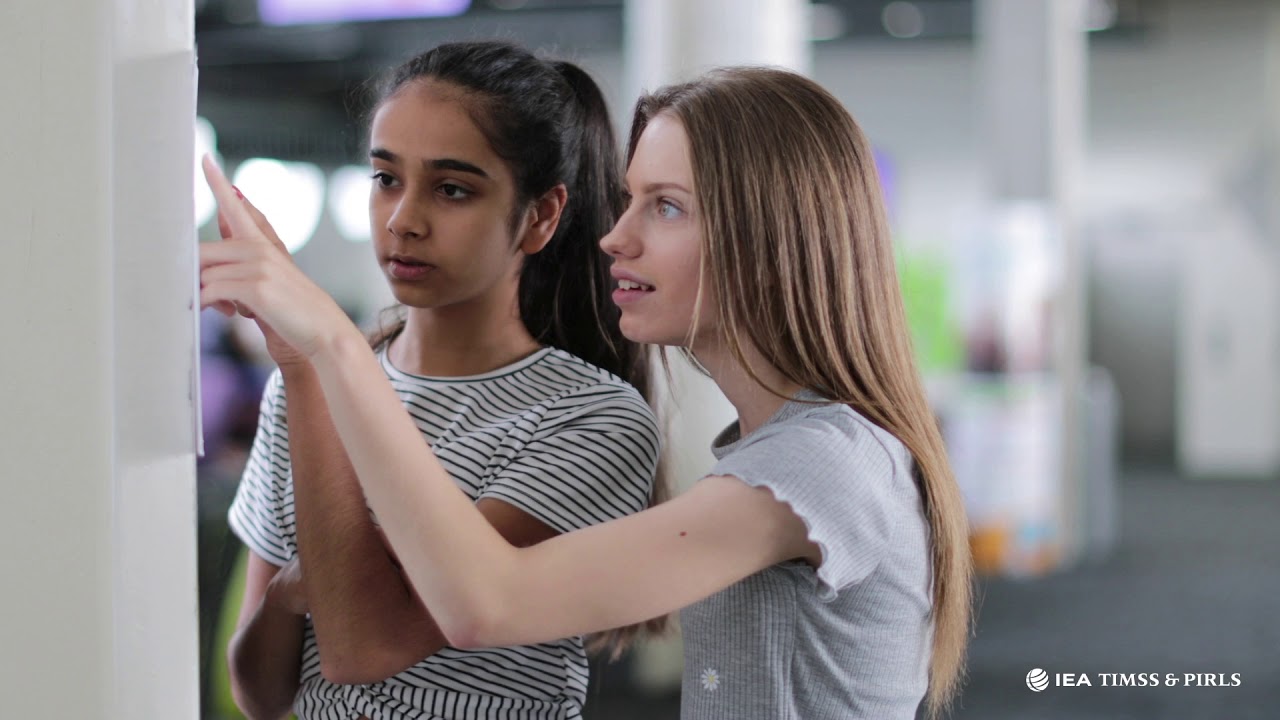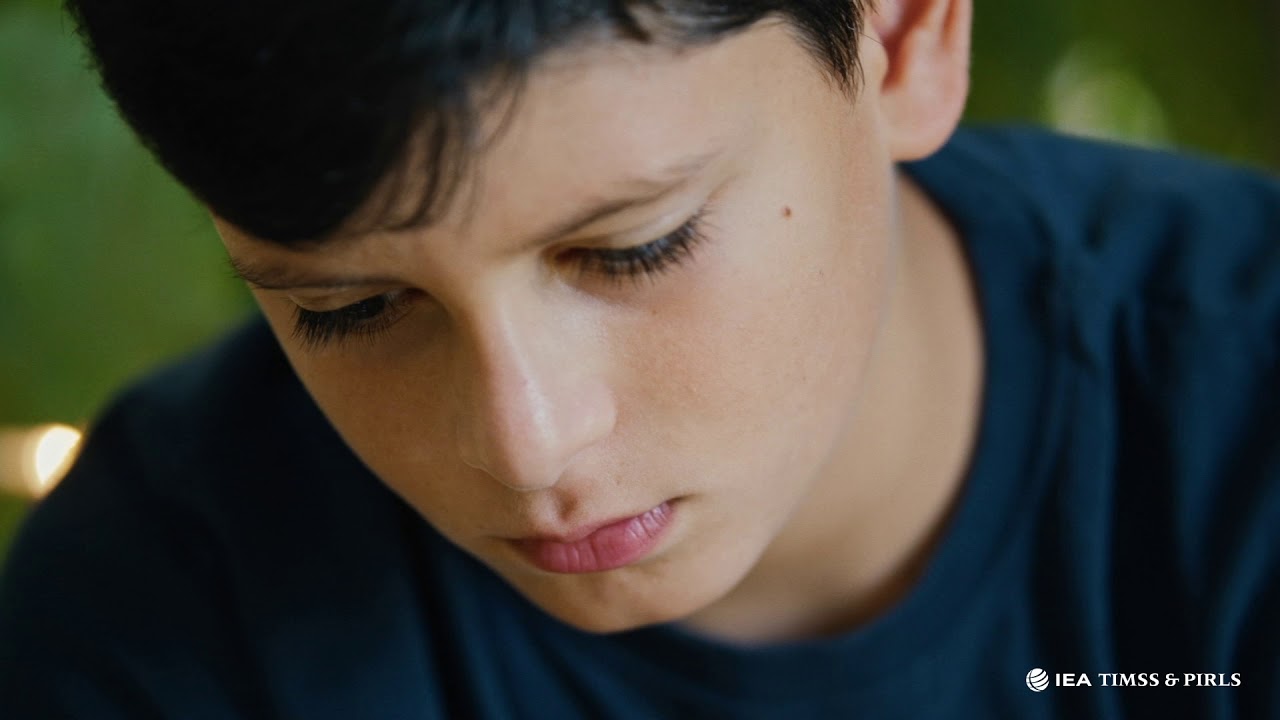TIMSS 2019 International Results: Student Achievement in Mathematics and Science
TIMSS 2019 International Results: Home, School, and Classroom Contexts for Teaching and Learning
Hosted jointly by UNESCO and IEA, in this event we shared a first look at the results of TIMSS (Trends in International Mathematics and Science Study) 2019 and presented highlights from the TIMSS 2019 international report. The event was held in English and simultaneously translated into French.
The launch also explored progress towards the Global Education 2030 Agenda, in the context of the study's efforts to advance the Sustainable Development Goal (SDG) 4, monitoring progress and promoting appropriate national, regional and international tools for measuring learning outcomes.
Access to a recording of the full event can be found on IEA's YouTube channel here.
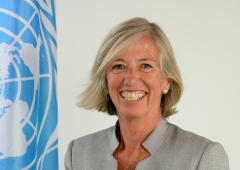
Ms Stefania Giannini was appointed UNESCO Assistant Director-General for Education in May 2018, becoming the top UN official in the field. In this position, she provides strategic vision and leadership for UNESCO in coordinating and monitoring the implementation of the Education 2030 Agenda, encapsulated in Sustainable Development Goal 4. With an academic background in the Humanities, Ms Giannini has served as Rector of the University for Foreigners of Perugia (2004 – 2012), being one of the first and youngest women to hold this position in Italy. As Senator of the Republic of Italy (2013 – 2018) and Minister of Education, Universities and Research (2014 – 2016), she developed and implemented a structural reform of the Italian education system, centered on social inclusion and cultural awareness. Ms Giannini has also been closely involved in an advisory capacity with the European Commissioner for Research and Innovation.
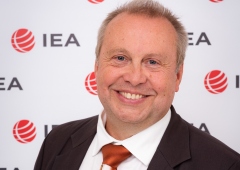
Dr Dirk Hastedt is the Executive Director of the IEA. He oversees the IEA's operations, studies, and services, and drives the IEA's overall strategic vision. Moreover, he develops and maintains strong relationships with member countries, researchers, policy makers, and other key players in the education sector. Dr Hastedt also serves as co-editor in chief of the IEA-ETS Research Institute (IERI) journal 'Large-scale Assessments in Education.
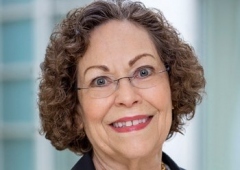
TIMSS & PIRLS International Study Center, Executive Director, Dr. Ina Mullis has been an energetic force in large-scale assessment, first nationally and then internationally. Beginning with TIMSS 1995 and then in founding PIRLS, over her 20 years with IEA Dr Mullis has played a key leadership role in building TIMSS and PIRLS into the global assessment programs they are today. Dr Mullis accomplished this by maintaining a relentless focus on excellence as the pathway to success and by insisting on producing increasingly useful and policy relevant data. Dr Mullis pioneered the idea of steadily evolving assessments as the basis for measuring trends while keeping pace with educational change. Dr Mullis also has spearheaded reporting the TIMSS and PIRLS reports, authoring or co-authored about 50 TIMSS and PIRLS reports as well as numerous papers and articles.
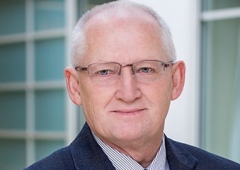
As Executive Director of the TIMSS & PIRLS International Study Center, Dr. Michael “Mick” Martin has led and contributed to a myriad of advances in assessment methods. Since his early work on IEA’s 1991 Reading Literacy Study through TIMSS 1995, the founding of PIRLS in 2001, and now 20 years of TIMSS trends, Dr Martin has built a long standing reputation for excellence in international assessment. With vigilance and good humor combined with a deep understanding and appreciation of good measurement, Dr Martin has steadfastly worked to improve the quality of the methods, procedures, and documentation underlying each TIMSS and PIRLS assessment. In addition, Dr Martin has been a long-serving and valuable member of IEA’s Technical Expert Group.
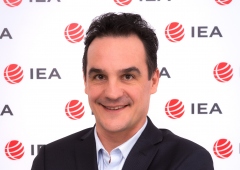
Dr Thierry Rocher has been the Chair of IEA since January 2019. Dr Rocher was previously the French representative to the General Assembly of IEA (2011-2018), and a member of the Standing Committee (2014-2017). Dr Rocher is the Head of Office for Student Assessment DEPP (Directorate for Statistics) at the Ministry of Education of France. Dr Rocher was President of the Association for Educational Assessment-Europe (AEA-Europe) (2016-2018), and served as the French representative at the PISA Governing Board (2017-2018). Dr Rocher is a statistician by training and holds a doctorate in psychology, specializing in educational measurement and psychometrics.
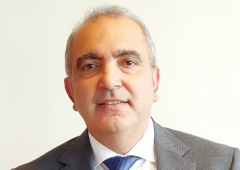
Dr Borhene Chakroun is an engineer and has a PhD in Education Sciences from Bourgogne University in France. Dr Chakroun worked, during the 1990s, as trainer, chief trainer, project manager. Dr Chakroun has also worked as short-term consultant for the EU, World Bank and other international organizations before coming to the European Training Foundation (ETF) in 2001. At the ETF, Dr Chakroun worked as Senior Human Capital Development specialist. Dr Chakroun is now Director of Policies and Lifelong Learning Systems Division at UNESCO-HQ. Dr Chakroun conducted a range of policy reviews and skills systems diagnosis in different contexts. Dr Chakroun has authored and co-authored various articles and books in the field of skills development and lifelong learning. Much of his most recent work focuses on global trends in reforming education and training systems and global agenda for skills development in the context of the 2030 Sustainable Development Agenda.
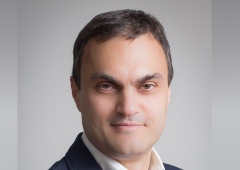
Dr Manos Antoninis is the Director of the Global Education Monitoring (GEM) Report since 2017. Dr Antoninis previously led the monitoring section of the report and was responsible, among other things, for financing gap estimates for the 2030 education targets, projections on the achievement of universal primary and secondary education completion, and the World Inequality Database on Education. Dr Antoninis represented the team in the development of the SDG 4 monitoring framework and is currently co-chairing the Technical Cooperation Group for SDG 4 indicators. Dr Antoninis has worked on public finance, monitoring and evaluation projects in education in Africa, Asia and South-eastern Europe.
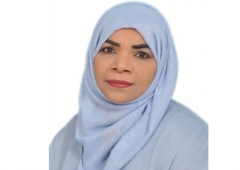
Dr Zuwaina Saleh Issa Al-Maskari holds a PhD from the University of Liverpool (UK), a Master's degree from Missouri State University (USA) and a Bachelor degree from the University of Reading (UK). Since 2008, Dr Al-Maskari has held the position of Director General of Educational Evaluation at the Ministry of Education in Oman. Dr Al-Maskari was elected to the IEA Standing Committee in 2019.

Dr Christian Christrup Kjeldsen has been involved in a number of domestic, European Horizon 2020 and international projects. His main theoretical focus has been the Capability Approach regarding questions of youth, education and social justice in societies. Dr Christrup Kjeldsen has a particular research interest in disadvantaged learners and reproduction of social inequality in education. Dr Christrup Kjeldsen is the overall coordinator of Danish IEA studies at the National Centre for School Research (NCS), and is the National Research Coordinator for TIMSS 2019. Dr Christrup Kjeldsen is also a member of IEA’s Standing Committee and a SMIRC member for science in TIMSS 2023.
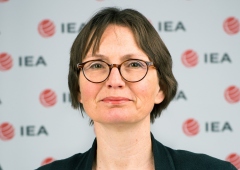
Dr Sabine Meinck works for the IEA since 2006. She has been involved with the sampling, weighting, variance estimation, and analysis of nearly all contemporary large-scale assessments in education. Dr Meinck provides guidance and support for research activities within the IEA, and is associated editor of the Springer journal "Large-scale Assessments in Education". Her main research interest lies with the science of cross-national large-scale assessments, and the methodological challenges of complex survey data.
Conducted every four years since 1995, TIMSS has been a valuable tool for monitoring international trends in mathematics and science achievement at the fourth and eighth grades.
TIMSS 2019 reports overall achievement as well as extensive background information on the home and school contexts in which teaching and learning mathematics and science take place. Like the previous TIMSS assessments (conducted in 1995, 1999, 2003, 2007, 2011, and 2015), TIMSS 2019 collected detailed information about curriculum and curriculum implementation, instructional practices, and school resources.
The TIMSS & PIRLS International Study Center, at the Lynch School of Education, Boston College, US, serves as the international study center for TIMSS 2019, working in close cooperation with the IEA, and the national centers of participating countries.

